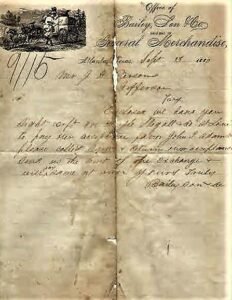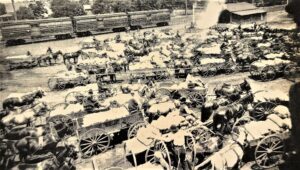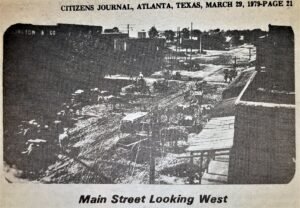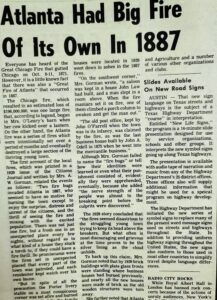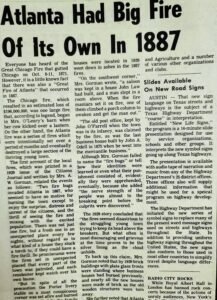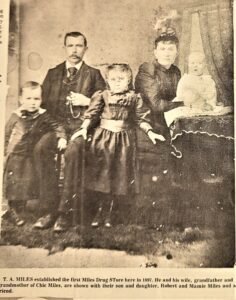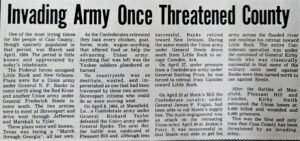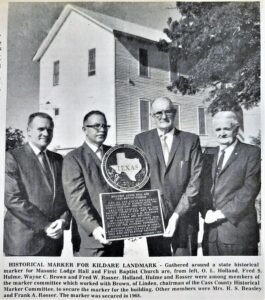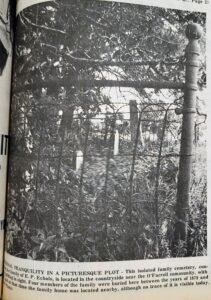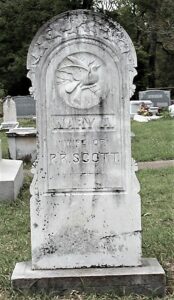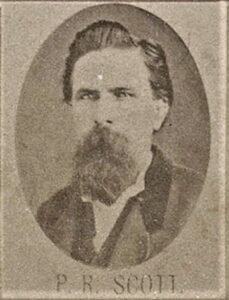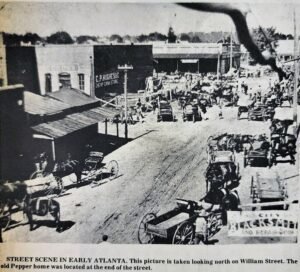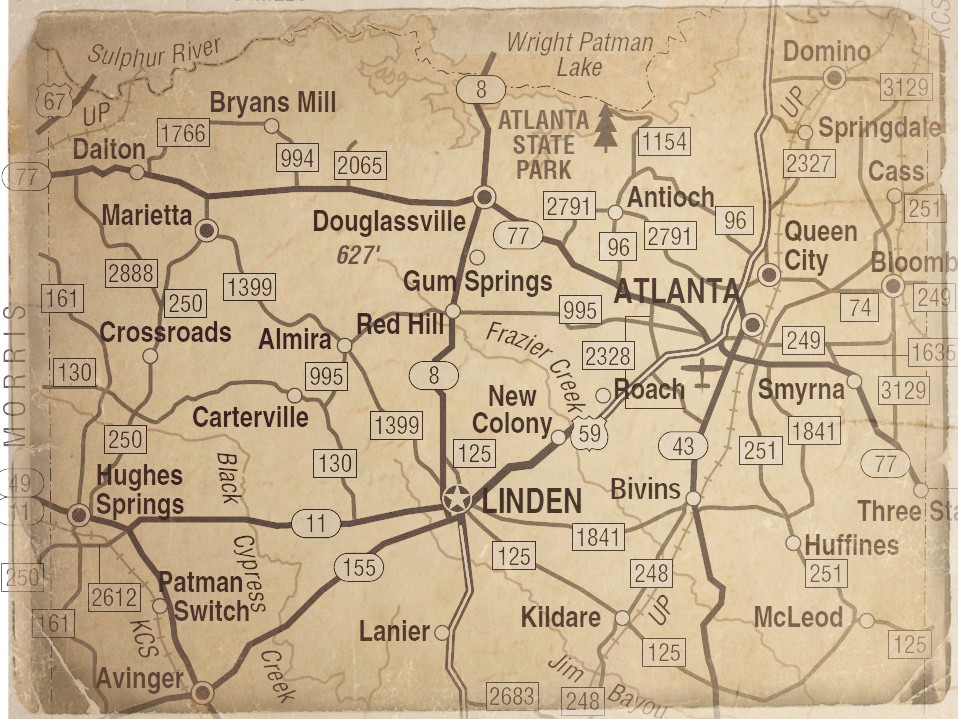
By Kate Stow
Richie, Richey, Ritchey, Ritchie or Richee?
Anyone who has bought property in Atlanta, Texas, has seen the words “J Richey ABST” in the legal description on their deed. Who exactly is “J Richey” and why is the name all over our town?
Jane Turk Allen was born in 1778 in Tennessee. She married John “Ritchey”, also born in 1778, in Henry, Tennessee. John was one of the “Tennessee Volunteers” who travelled to Texas with the likes of Sam Houston, James Bowie and Davy Crockett.
The couple settled in Clarksville, Red River County, Texas, while John went to fight the Mexican Army, where he was killed in battle. In 1837 the new Republic of Texas legislature gifted his widow 5,440 acres of land in eastern Cass County, which was part of Red River County at the time.
When Jane died at the age of 60 in 1838, her children inherited the land. Her son, Thomas Jefferson Ritchey married Mary Malinda Young. Their daughter, Mary Young Ritchey, was the widow of Charles Connally and had an infant daughter, Lula, when she married Preston Rose Scott on September 12, 1861 in Linden. The couple lived on 588 acres he bought from his father-in-law. The 111 free acres given to the Texas and Pacific Railroad came from that acreage.
Researching “J Richey” is frustratingly difficult due to the numerous misspellings that occurred when records were handwritten in cursive. The Ancestry.com search engine found numerous results for Jane Richey, born in 1778, with five different spellings: Richie, Richey, Ritchie, Ritchey and Richee. In fact, the tree for Thomas Jefferson Ritchey shows four separate spellings for he and his siblings.
The Scotts of Harrison County
Preston Rose Scott was born in January 1840 in Caddo Parish, Louisiana. His parents, William Thomas Scott and Mary Washington Rose Scott relocated to Texas that June and settled in Harrison County. William was a prominent politician during the late Republic and early statehood period and served in both houses of the Texas legislature. He attended both the 1845 Texas Constitutional Convention and the 1861 Seccession Convention.
Preston was raised in Harrison County and married a Mary Taylor there in September 1858. In 1859 he relocated to Atlanta in Cass County and was listed as a farmer in the 1860 census. He was also a business owner and helped to organize the first bank established in Atlanta, of which he was a president of. He was also the president of the East Texas Transportation County.
Following the death of Mary Taylor Scott in 1859, Preston married Mary Richey. The 1870 census listed them in Douglassville, Davis (Cass) County with five sons and one daughter, ranging in ages from eleven to two.
Preston and Mary Scott had a total of eleven children within 22 years of their wedding day. Their oldest son, Thomas R. Scott died young in 1871; William Thomas Scott was born in 1863; Buckner Harris Scott was born in 1864; Hiram C. Scott was born in 1865; Preston R Scott was born in 1868 and died in 1870; Mary Malinda “Linnie” Scott was born in 1872; Bettie Scott was born in 1872 and died in 1873; Ella S. Scott was born in 1875; Marvin T. Scott was born in 1878; Elba Scott was born in 1880 and died in 1890; John Pinckney Scott was born in 1882.
The streets of Atlanta
Legend says that Preston Scott named the first streets of Atlanta after his first children: Thomas, William, Buckner, Hiram and Louise. However, there are no records of a child named “Louise.” It’s possible that his stepdaughter’s name, Lula, was a nickname for Louise, but no records of that have been forthcoming.
The streets of Hiram, William, Thomas and Buckner form a square, with the railroad cutting directly through the middle, north to south. Main street, which was originally named “Common” or “Commons” cut directly through the middle, east to west.
Although Buckner street no longer runs straight through to Main, or Commons, there is evidence to suggest it did in the beginning.
Congressman Scott
In 1872 Preston won the election as representative for District 8—comprised of Bowie, Davis, and Marion counties—to the House of the Thirteenth Texas Legislature. He was involved in key legislation to pass a measure to grant land to the International and Great Northern Railroad instead of money.
Scott, a Democrat, later represented Cass County at the 1875 Texas Constitutional Convention. During this convention he served on the Judiciary Committee and was instrumental in establishing modern judicial districts and appeals courts throughout the state.
Scott was listed as a stock farmer living in Hardeman County in the 1900 census. In addition to his wife, two children (born since 1870) were still living in the household. He died on April 18, 1906, and was buried in Scottsville Cemetery in Harrison County.

